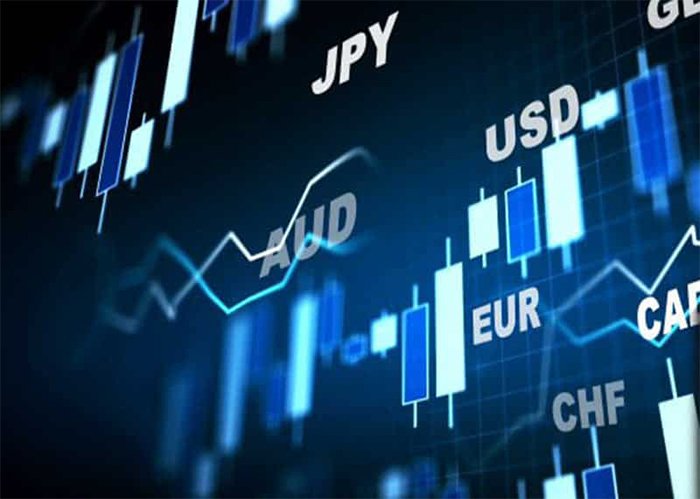-Introduction:
Political tensions, military conflicts, government decisions, and changes in economic policies significantly impact the valuation and movement of currencies. This is due to the close relationship between financial markets and the confidence in the stability of economies and politics in various countries. In this article, we will explore how geopolitical events affect currency markets and how traders respond to these events

-Definition of Geopolitical Events and Their General Impact:
Geopolitical events are those that occur at the political level and affect the political geography of countries, such as wars, diplomatic tensions, economic sanctions, changes in political leadership, agreements and alliances between countries, and developments related to natural resources or trade routes. These events impact currency markets because they increase the level of uncertainty in the markets. When there is a political crisis or military conflict, investors become alert, fearing that these events could lead to economic volatility or financial crises. These concerns lead investors to alter their investments and shift their money into currencies or assets considered safer under such conditions

-How Geopolitical Events Affect Currency Markets:
There are several ways in which geopolitical events impact currency markets. Below are some of the key effects:
Impact on Economic Confidence: Geopolitical crises lead to a loss of confidence in the national currency, which is reflected in a decline in its value against other currencies. For example, when wars or political conflicts occur in a country, there may be a rapid outflow of both domestic and foreign capital, leading to a decrease in demand for the national currency. For instance, during the war in Ukraine, the Ukrainian hryvnia saw a sharp decline due to political and economic pressures. In contrast, demand for stable currencies like the U.S. dollar and the euro increased.
Impact of Economic Sanctions: Economic sanctions imposed by countries on one another can lead to a decline in the value of the affected country's currency. When major powers like the United States or the European Union impose sanctions on a specific country, that country may lose access to global financial markets, leading to a decrease in demand for its currency. For example, after economic sanctions were imposed on Iran, the Iranian rial experienced a significant decline due to the country's inability to access global trade. Similar effects were seen when sanctions were imposed on countries like Russia and North Korea.
Changes in Monetary and Trade Policies: Geopolitical events can lead to changes in monetary and trade policies adopted by the affected countries. For example, a country's central bank may make decisions to cut interest rates or increase financial incentives to cope with the economic fallout from geopolitical events. For instance, in response to trade tensions between the United States and China, China might devalue the Chinese yuan to support exports, while the U.S. Federal Reserve might raise interest rates to combat inflation arising from these tensions.
Impact on Oil and Metal Prices: Geopolitical events such as wars in regions rich in natural resources can directly affect oil and metal prices. Since many currencies (especially major currencies like the U.S. dollar) are closely linked to oil prices, fluctuations in oil prices can impact the value of these currencies. For example, when oil prices sharply rise due to tensions in the Middle East, the U.S. dollar or other currencies affected by these events may experience volatility.
Increased Demand for Safe-Haven Assets: During times of geopolitical instability, investors tend to move their investments into assets considered "safe havens" to preserve the value of their funds. Some of the most prominent safe-haven assets include the U.S. dollar, the Japanese yen, the Swiss franc, and gold. Increased demand for these assets leads to a rise in their value, significantly affecting currency markets. At the onset of the U.S.-China trade war, both the U.S. dollar and the Japanese yen saw a noticeable increase in value against many other currencies as investors sought safety in these assets amidst rising risk.

-Impact of Domestic Political Tensions:
In addition to military conflicts or international disputes, domestic political tensions within countries can also lead to significant changes in currency markets. For example, in some countries, elections or sudden changes in government can create an unstable environment for the national economy, increasing currency volatility. In 2016, for example, the Brexit decision had a significant impact on the British pound, as the currency experienced a sharp decline due to concerns about the economic future of the UK after leaving the European Union

-Response of Investors and Speculators in the Markets:
Traders and investors in the currency markets often react quickly to geopolitical news. The more sudden or unexpected the geopolitical events are, the more pronounced the impact on the markets. Investment in currency markets heavily relies on expectations, and when sudden geopolitical changes occur, market movement can accelerate due to the swift reactions of investors. Today's traders increasingly depend on technical and fundamental analysis to predict the impact of geopolitical events on currency markets. Such analyses can lead to rapid buying or selling actions based on new political developments

-Strategies Used to Face Geopolitical Impacts:
Although geopolitical events significantly affect currency markets, traders can take certain steps to minimize risks and take advantage of these fluctuations:
Diversifying the Investment Portfolio: By distributing investments across various currencies or assets, investors can reduce risks arising from geopolitical events.
Using Technical Analysis: By studying market trends and past patterns, investors can predict currency movements more accurately.
Reducing Leverage: Leverage can amplify losses during times of sharp volatility, so reducing leverage helps minimize risks during such periods

-Conclusion:
It can be said that geopolitical events are a crucial factor in determining currency prices and guiding investors' strategies in the forex markets. With the increasing interconnection between the global economy and political shifts, it becomes essential for investors and traders to closely monitor geopolitical situations to understand their potential impact on currency markets. At the same time, the ability to adapt to these changes is a key trait for successful investment in these volatile markets









